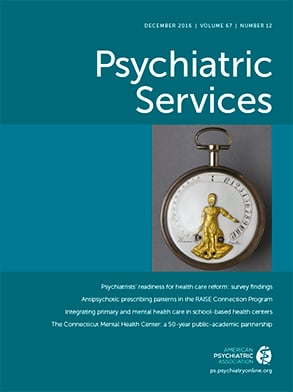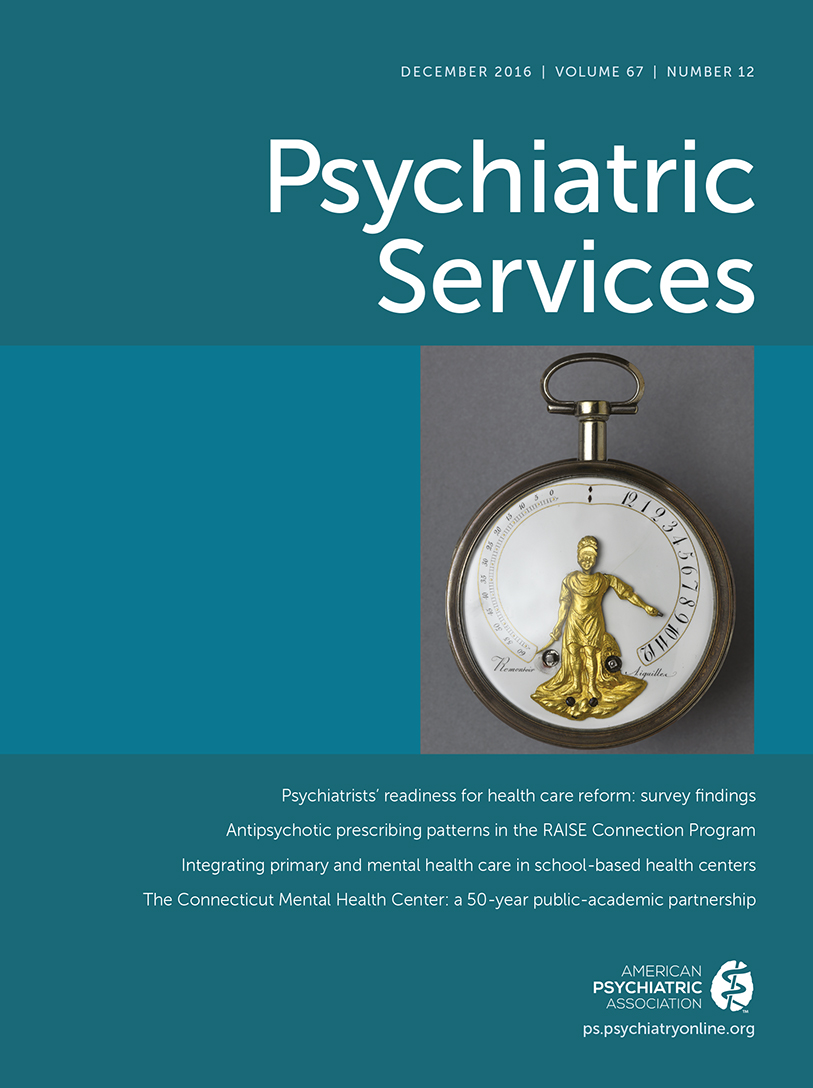I never expected to be the mother of someone with a severe mental illness. My undergraduate education (at Swarthmore College) and graduate education (at the University of California, Los Angeles) in the 1970s left me with a comforting notion about child rearing; as long as children had parents who were loving, sensitive, responsible, and supportive, they would not be in danger of developing mental illnesses.
My personal ignorance was compounded by the common lack of mental illness literacy in the United States and in Canada, where I lived when I had children. When our younger daughter began to flounder as a teen, we didn’t understand what was happening. Only much later did we learn that our daughter’s puzzling cognitive losses, her strange physical gait, and her growing lack of connection to the world around her were well-known prodromal signs of schizophrenia.
Unfortunately, the therapist to whom we took our daughter for over two years knew even less than we did about bipolar disorder and schizophrenia. The program at the university in Vancouver where she had trained for her master’s in counseling psychology hadn’t required any science-based curriculum on psychotic disorders. Only much later did our daughter help us understand that as her symptoms grew worse, this therapist continued to reassure her that once they could finally discover “the family secret,” all these difficulties could be resolved.
Although the search for this nonexistent family secret was futile, our daughter developed, with our naïve support, a strong attachment to the therapist. This bond eventually increased the chaos of our situation once our daughter finally had a clear psychotic break. We watched, helpless at that point, as the therapist told our vulnerable daughter not to trust the very experienced psychiatrist who had agreed to work with her. When this psychiatrist gave up, she located a replacement for us who managed to sever the unhealthy relationship with the therapist. At the same time, this psychiatrist restored the close relationship with us that our daughter had relied on for most of her life.
However, the new psychiatrist wasn’t experienced in dealing with the schizoaffective disorder our daughter was developing. When our daughter had a new and severe psychotic break, she didn’t receive adequate doses of an antipsychotic medication, and she became ever more psychotic over the next two years.
In the second year of her debilitating psychosis, she could not be left alone in our home. If she tried to use the microwave, for instance, she would try to heat something for 40 minutes when it just needed 40 seconds. She liked baths and would turn the faucets on but then wander away unaware while the tub overflowed. She also couldn’t walk places by herself anymore. Not only did she get lost trying to find familiar places, but also she could not remember how to navigate traffic as a pedestrian.
Eventually, following a trip to the Menninger Clinic, our daughter received the high dose of an antipsychotic that she needed to escape the horrors of psychosis. During these two years, I had imagined what it might be like if some medication finally worked and how this hell could be just a part of a longer, better story. I hadn’t found any Canadian stories like this, and eventually I wrote a memoir. Sadly, since its publication, I hear from both Canadian and American families that they have made dangerous mistakes similar to mine because they are missing essential information about psychotic disorders.
Our daughter was fortunate to receive the brief involuntary hospitalizations in British Columbia that she was too ill to understand she needed. She now tells other families that she hopes never to be left in untreated psychosis in the future.
Our daughter was also lucky that once she was no longer psychotic, she had access to extensive, science-based psychoeducation about her illness. This education has helped her and the friends she has made who also live with psychotic disorders to understand, accept, and learn to manage their illnesses.
The psychiatrist who got our daughter the help she needed is a Canadian expert on schizophrenia and has worked with our daughter and collaborated with us for the past 13 years. Our daughter was once one of the most severely psychotic teens the local refractory psychosis team had seen, but she has since benefited from years of stability.
Unfortunately, our daughter has the well-researched cognitive losses that commonly occur with schizophrenia. Her difficulties with working memory and short-term memory, focusing, sequencing, problem solving, judgment, and social skills make the basic tasks of daily living extremely difficult. Canada has done very little to implement the evidence-based cognitive remediation programs that are now available.
One way that I have responded to the lack of cognitive remediation programs has been to write about the problem. For the past four years I’ve been writing for
Huffington Post Canada about mental illness policies from the perspective of family caregivers (
www.huffingtonpost.ca/susan-inman). When I first wrote about cognitive losses associated with schizophrenia (
1), I was inundated with messages from families who had never heard about the extensive research about these problems. They were witnessing the daily confusion caused by family members who forgot to relay phone messages, kept losing keys, and had trouble completing household tasks. However, they had never been told that these problems are a common part of schizophrenia even when other symptoms are well controlled by medications. This knowledge was clearly going to impact how they responded to these problems.
Figuring out how best to help our daughter deal with her complicated disorder has been only part of the steep learning curve for me. The other part has been trying to understand the dysfunctional mental health systems in both Canada and the United States. Eventually I realized that, in both countries, mental illness policies and services are being informed by two paradigms that are not very compatible with each other.
I better understood these differing belief systems after examining the Web sites of the National Institute of Mental Health (NIMH) and the Substance Abuse and Mental Health Services Administration (SAMHSA). I saw the NIMH as offering science- and evidence-based ways of understanding and responding to mental illnesses. Here was the pathway that eventually led my daughter to recover her sanity. On the other hand, SAMHSA’s Web site seemed to barely acknowledge the existence of mental illnesses (
2); I was not surprised that their chief medical Officer, Dr. Elinore McCance-Katz, recently resigned and has written about why she left “an agency that, for the most part, refused to support evidence-based psychiatric treatment of mental disorders” (
3).
During the 16 years that we have been dealing with our daughter’s illness, I have seen more mental health services in Vancouver and elsewhere in Canada offer the alternative practices that SAMHSA has helped cultivate. Our new national guidelines for training peer support workers (
5), like SAMHSA’s, don’t recommend providing any information on mental illnesses. Equally problematic, they promote the notion that people must always be free to choose whether they want to be treated. I have now become very cautious about recommending local programs to my daughter. Even with her solid psychoeducation, I know it would not be good for her to be around a group of potential friends who do not believe that the “medical model,” as the alternative “antipsychiatry” movement calls it, can help people understand and manage mental illnesses.
I hope that the legislation currently pending in the U.S. Congress can create sensible policies and services for people with severe mental illnesses such as my daughter’s. Enactment can help the many American families I know whose sons and daughters with untreated psychotic illnesses have ended up homeless or incarcerated (
6), and I believe that changes in the influential U.S. mental health system could lead to better trends in the delivery of mental health care in Canada.
I still don’t really know how to be the mother of an adult daughter whose disabilities prevent her from managing the tasks of daily life. But I do know that her future will be better, especially when her parents are no longer alive, if she can be surrounded by services and a culture that acknowledge the difficult reality of her mental illness.

